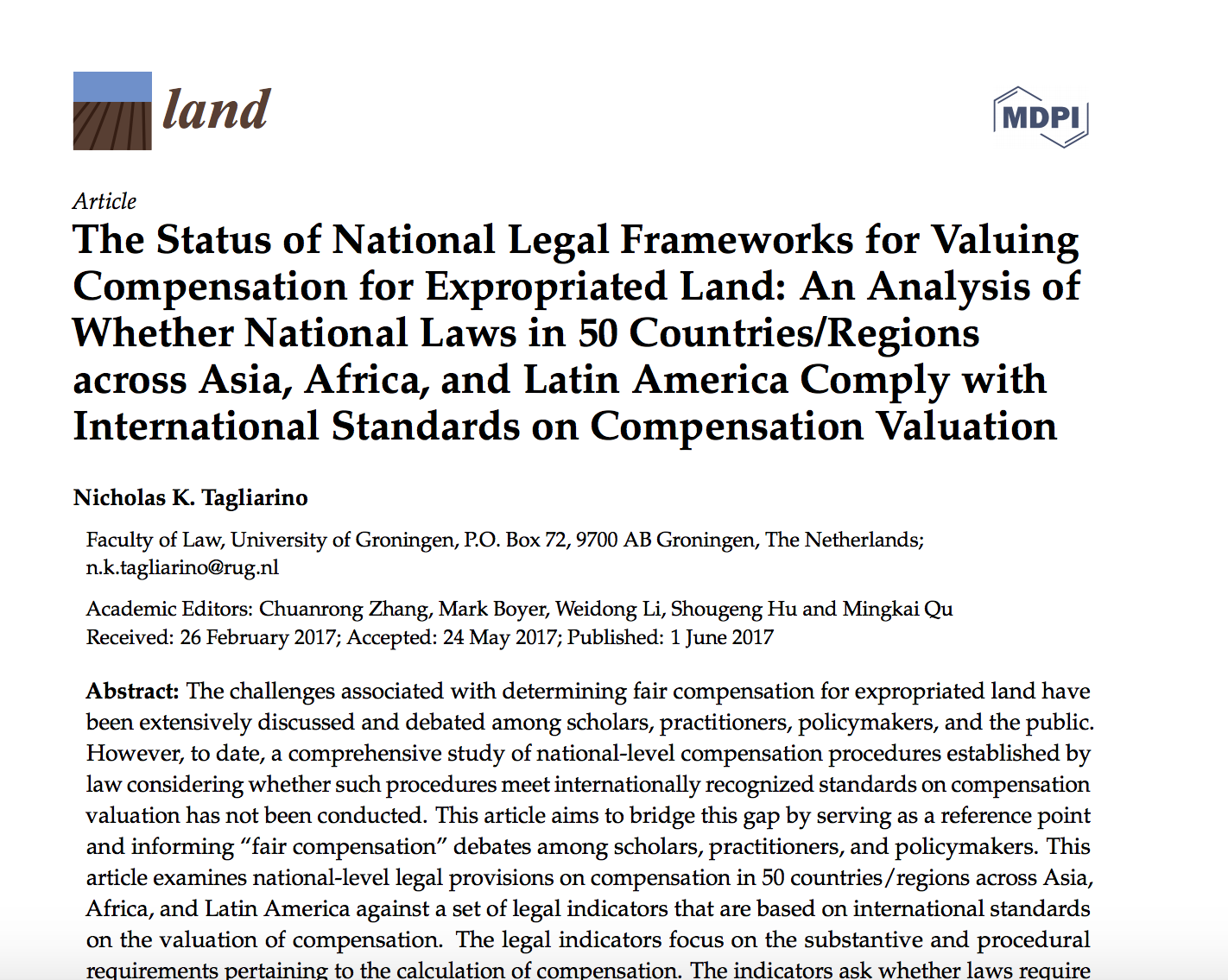Resource information
The challenges associated with determining fair compensation for expropriated land have been extensively discussed and debated among scholars, practitioners, policymakers, and the public. However, to date, a comprehensive study of national-level compensation procedures established by law considering whether such procedures meet internationally recognized standards on compensation valuation has not been conducted. This article aims to bridge this gap by serving as a reference point and informing “fair compensation” debates among scholars, practitioners, and policymakers. This article examines national-level legal provisions on compensation in 50 countries/regions across Asia, Africa, and Latin America against a set of legal indicators that are based on international standards on the valuation of compensation. The legal indicators focus on the substantive and procedural requirements pertaining to the calculation of compensation. The indicators ask whether laws require assessors to account for various land values when calculating compensation, and whether there
are legal processes in place that allow affected persons to negotiate compensation amounts, receive prompt payments, and hold governments accountable by appealing compensation decisions in courts or before tribunals. The results of the study show that most of the 50 countries/regions assessed do not have national laws that comply with internationally recognized standards on the valuation of compensation. Based on the findings from the legal indicator analysis, this paper presents a set of recommendations for reforming compensation procedures to bring them into conformity with international standards.



